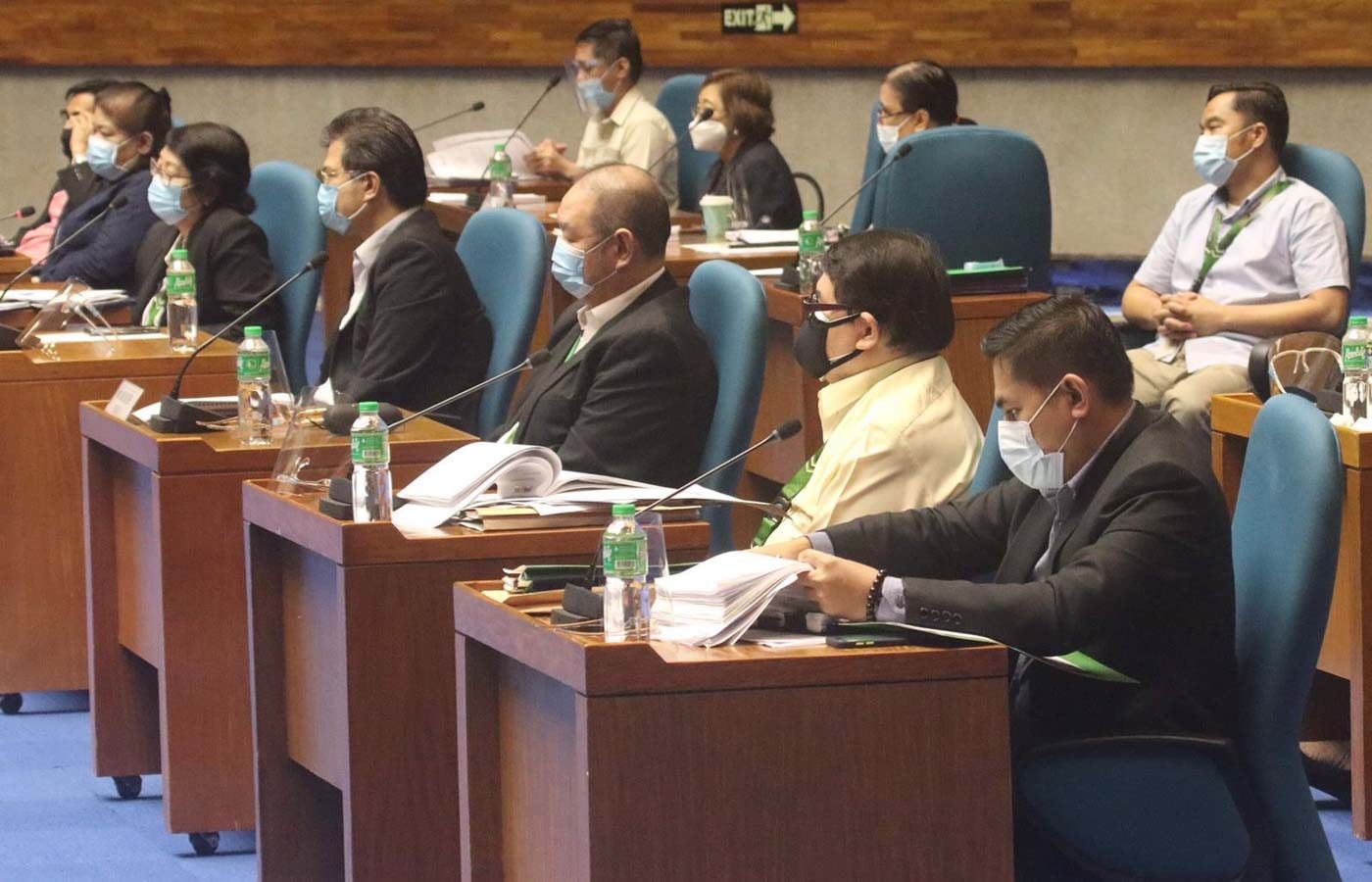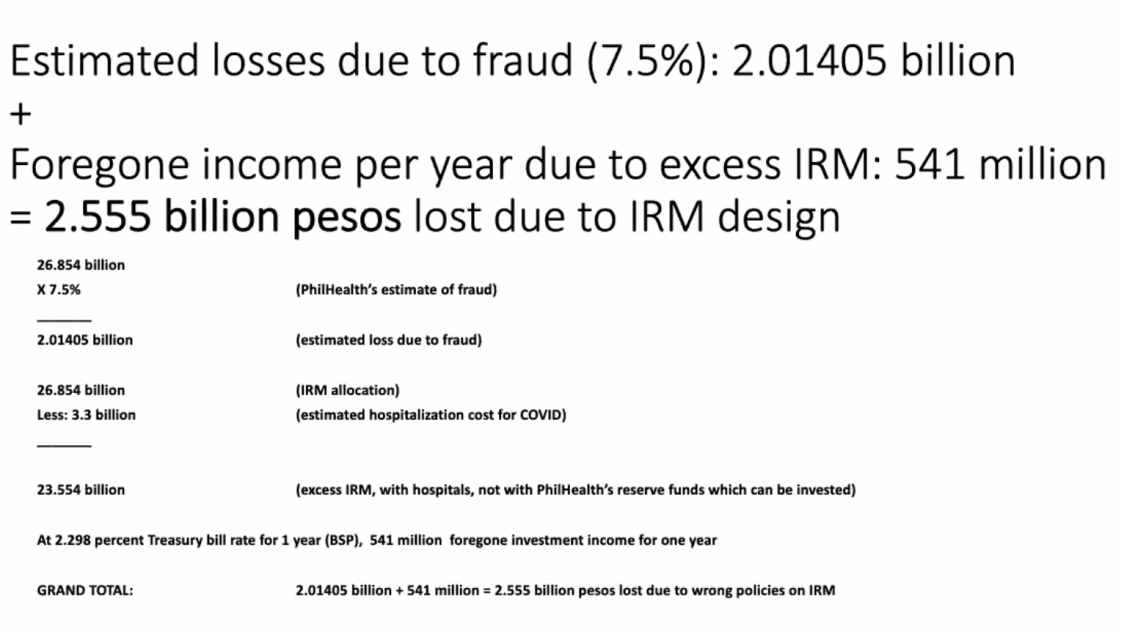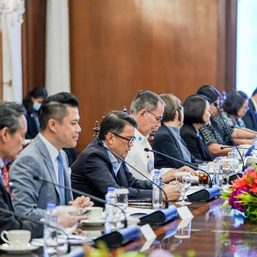SUMMARY
This is AI generated summarization, which may have errors. For context, always refer to the full article.


Economist turned lawmaker Stella Quimbo was aghast after learning the Philippine Health Insurance Corporation (PhilHealth) allows hospitals to use its controversial advanced payment scheme meant for insurance claims to also pay for salaries and supplies.
During the House’s 3rd hearing on the PhilHealth anomalies on Monday, August 17, Quimbo asked the state health insurer’s senior vice president for the fund management sector Reynato Limsiaco Jr if health facilities can use their Interim Reimbursement Mechanism (IRM) share to pay for personnel’s salaries, and buy test kits and supplies.
Limsiaco said yes, explaining these would fall under the operational costs for which they allow the IRM to be used.
This shocked Quimbo, who said this probably explains why out of the P14.9 billion worth of IRM funds already disbursed to healthcare institutions (HCIs), only P2.7 billion have been liquidated so far.
“Mr Chair, klarong-klaro naman po, ‘no, na ang IRM ay tila nagiging blank check na binigay sa mga ospital, na puwede nilang gamitin sa kahit na ano – pambili ng floor wax, pambili ng kotse – at tsaka na lang nila ila-liquidate,” said the Marikina 2nd District congresswoman.
(Mr Chair, it’s so clear here that the IRM is like a blank check given to hospitals, which they can use to buy anything – floor wax, cars – then they will just liquidate later.)
“Nagtaka pa tayo kung bakit late na late po ang pag-liquidate…. Eh siyempre naman po [it is] because hospitals can freely dispose of the funds for the time being habang hindi pa liquidated,” she added.
(And we’re wondering why the liqudation is late…. Of course it’s because hospitals can freely dispose of the funds for the time being while the money isn’t liquidated yet.)
The IRM – which has emerged as an alleged source of politicking and corruption in the state health insurer – is a program that advances the reimbursement of members’ insurance claims to hospitals and clinics directly hit by “fortuitous events,” supposedly cutting the long queue and tedious bureaucratic process.
IRM shares were computed based on hospitals’ historical claim or the average daily claim from the previous year multiplied by 90, which should approximate the amount medical facilities would need for 3 months.
On Monday, PhilHealth board member Maria Garciela Garayblas Gonzaga told lawmakers they initially gave hospitals 60 days from receipt of the check to liquidate the money.
But she said hospitals nationwide asked for an extension supposedly due to limitations caused by the coronavirus pandemic.
“Marami pong nakiusap na ospital…kung puwede pong ma-delay nang kaunti ang pag-liquidate. Ngayon, sa halip po na 60 days, in-extend po ng 120 days para mabigyan ang karamihan ng mga ospital all over the Philippines,” Gonzaga said.
(A lot of hospitals appealed…to delay the liquidation deadline. So instead of 60 days, we extended it to 120 days to accommodate many of the hospitals all over the Philippines.)
PhilHealth already suspended its implementation of the IRM on August 13 after multiple anomalies about it were uncovered during the ongoing House and Senate investigations.
Estimate P2.555 billion in losses
According to Quimbo, PhilHealth stands to lose an estimated P2.555 billion due to the “rotten system” of the IRM.
“Ang implication ng bulok na sistema ng IRM, na tila blank check siya at libreng pautang sa mga ospital, [ay] hindi lang tayo nawawalan dahil sa fraud; meron din tayong foregone income every year dahil sa naka-park na pondo sa mga ospital,” Quimbo said.
(The implication of this rotten system of the IRM, which is like a blank check and an interest-free loan for hospitals, is that we’re not only losing money due to fraud; we also have foregone income every year because of the parked funds in hospitals.)
“Ang nawawala po from a P26.8 billion IRM total fund, puwedeng mawala ang P2 billion sa fraud. And on top of that, may P541 million na nawawala po in foregone opportunities po ng PhilHealth,” added the economist-lawmaker.
(There is around P2 billion in possible losses from the P26.8 billion IRM total fund. And on top of that, there is also P541 million in foregone opportunities for PhilHealth.)
This is how Quimbo arrived at her estimate:

Quimbo has become a force to be reckoned with during the past PhilHealth hearings. She has been rebutting the agency’s faulty estimates with her own computations – using PhilHealth’s own data – to show how the agency’s overestimations “give more leeway” for officials to commit fraud.
On Monday, House committee on public accounts chairperson Mike Defensor also accused PhilHealth of releasing P1.49 billion worth of IRM funds to 51 HCIs despite pending fraud cases.
A total of 14 PhilHealth officials have already signed bank secrecy waivers, allowing the Anti-Money Laundering Council to look into their bank transactions as the state health insurer continues to face corruption controversies.
Two of these officials – PhilHealth executive vice president and COO Arnel de Jesus and PhilHealth legal sector chief Rodolfo del Rosario Jr – answered lawmakers’ questions during the first 4 hours of the hearing.
Del Rosario even agreed to meet with legislators in a closed-door executive session between 1 pm to 3 pm.
But De Jesus and Del Rosario later excused themselves from the hearing when it resumed in the afternoon, citing health reasons for their absence.
De Jesus, Del Rosario, and Philhealth president and CEO Ricardo Morales had also used this reason when they asked to take a break from the House hearing last August 12. – Rappler.com
Add a comment
How does this make you feel?



![[OPINION] The First Mode conundrum](https://www.rappler.com/tachyon/2024/03/tl-first-mode-conundrum-03232024.jpg?resize=257%2C257&crop=283px%2C0px%2C720px%2C720px)

There are no comments yet. Add your comment to start the conversation.